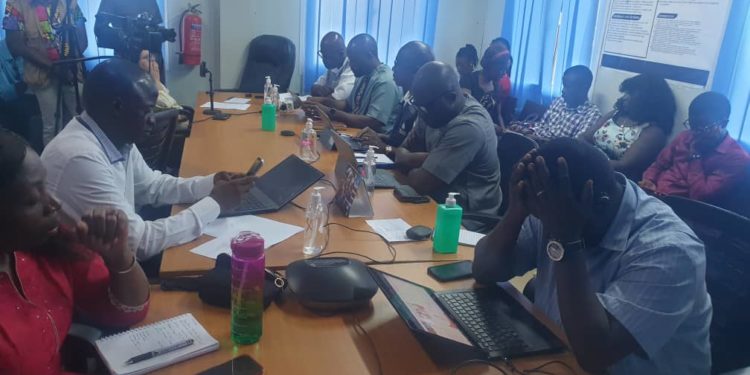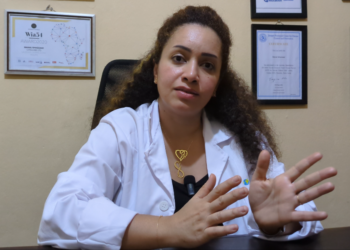By Morrie Koroma
The National Poliovirus Vaccination Campaign’s second round is set to commence, with key challenges from the first round addressed during a press briefing held at the EOC Conference Hall on Wilkinson Road. The briefing, attended by representatives from the World Health Organization (WHO), UNICEF, GPEI Partners, Polio Emergency (case-epidemiology), and members of the press, provided crucial updates and outlined preparations for the upcoming phase.
Dr Jalikatu Mustapha, Deputy Minister of Health 2, although absent, had his address delivered on his behalf. The statement highlighted the success of the first round of the novel Oral Polio Vaccination (nOPV), where over 1.6 million children were vaccinated across the country. However, several significant challenges were noted that need to be addressed for the second round.
Dr. Thompson Igbu, WHO Vaccine Team Lead, emphasized the major difficulties faced in accessing hard-to-reach areas. These include remote provinces where health workers had to navigate rivers and poor roads, and urban mountainous regions in Freetown, where the terrain posed significant challenges for vaccinators.
“Children in the hills and mountain areas of Freetown found it difficult to be vaccinated,” Dr. Igbu noted. He urged parents and guardians to assist by bringing their children to more accessible locations for vaccination.
Dr. Vandara Joshi, UNICEF’s Chief of Health and Nutrition, highlighted the importance of proper vaccine disposal. She stated that with support from the Ministry of Health, GPEI, and WHO, UNICEF facilitated the delivery of 3.6 million doses of vaccines for the first round and 1.8 million doses for the second round.
Dr. Joshi warned about the dangers posed by the improper disposal of used vaccines. UNICEF is collaborating with Focus 1000, an NGO partner, to monitor and ensure that used vaccines and remains are safely destroyed after the campaigns, he disclosed.
Despite low coverage in Port Loko, Tonkolili, and Western Area Urban during the first round, the second round aims to address these challenges head-on, according to officials.
In Dr Mustapha’s statement, she outlined several measures to ensure comprehensive coverage, including the use of mobile clinics, noting that outreach programs will be expanded to ensure vaccines reach even the most remote areas promptly.
Greater emphasis will be placed on involving community leaders and members of the press to support the vaccination efforts, ensuring that children in hard-to-reach areas are not left out, officials added.
Parents and guardians are encouraged to bring their children to accessible vaccination points to facilitate the work of vaccinators, especially in challenging terrains.
The Deputy Minister concluded by expressing gratitude to the health workers, community leaders, international partners, and the media for their efforts in making the first round a success. The campaign’s goal remains clear: to vaccinate all children and eliminate polio from the country.
As the nation gears up for the second round of vaccination, which will start on June 8th to June 11th, 2024, the collaborative efforts of various stakeholders and the strategic measures in place aim to overcome the hurdles faced previously and ensure a more effective and inclusive vaccination campaign.






















